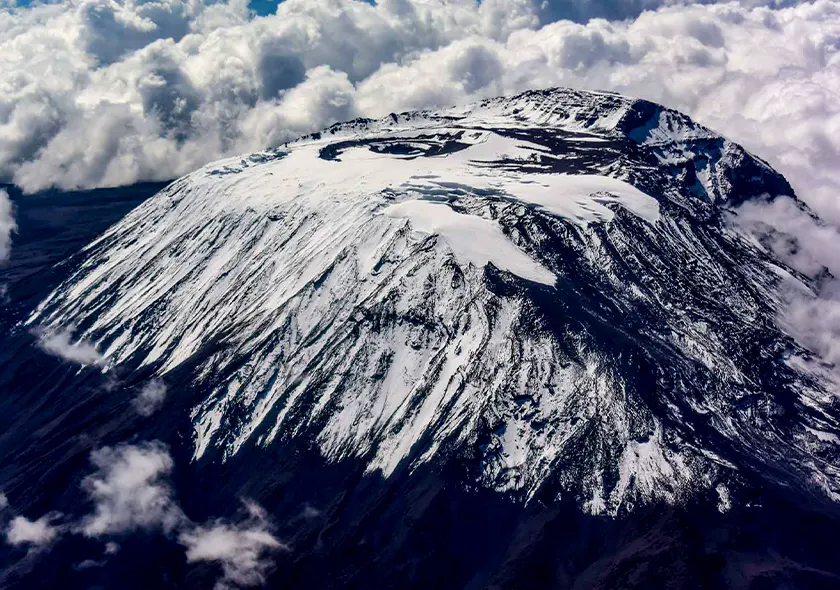
Mount Kilimanjaro, the tallest mountain in Africa, stands at an impressive height of 5,895 meters (19,341 feet). Located in Tanzania, it is one of the most iconic and sought-after trekking destinations in the world. Known for its snow-capped summit, Kilimanjaro offers a truly unique experience for climbers and adventurers of all levels.
The mountain is a dormant volcano and is made up of three volcanic cones: Kibo, Mawenzi, and Shira. The climb to the summit, known as Uhuru Peak, is not only a physical challenge but also a scenic adventure, passing through a variety of ecosystems, from tropical rainforests to alpine deserts.
Climbers from around the globe come to Kilimanjaro to take part in one of its multiple routes, including the Marangu, Machame, and Lemosho routes. Each offers a different experience of the mountain, with varying levels of difficulty and views. The breathtaking vistas, varied landscapes, and the feeling of achievement when reaching the summit make Kilimanjaro one of the most rewarding climbs on Earth.
Apart from the challenge of climbing, Mount Kilimanjaro is also home to a rich array of flora and fauna, including species found nowhere else on Earth. Whether you’re looking to summit the mountain or simply explore its slopes, Kilimanjaro is a symbol of adventure and achievement.

| Destination | Mount Kilimanjaro |
|---|---|
| Locations | Tanzania |
| Size | 5,895 meters (19,341 feet) |
| Overview | Mount Kilimanjaro is Africa’s highest peak and one of the world’s most famous trekking destinations. Its diverse ecosystems and the challenge of reaching the summit attract adventurers from all over the globe. |
| Attraction | Uhuru Peak (summit), stunning views, diverse flora and fauna, and unique trekking experiences. |
| Best Time to Visit | January to March and June to October, when weather conditions are most favorable for trekking. |
| Activities | Trekking, mountaineering, wildlife viewing, photography, and scenic hikes around the mountain. |
| Features | Highest peak in Africa, a dormant volcano with three volcanic cones, UNESCO World Heritage Site, diverse ecosystems and wildlife. |